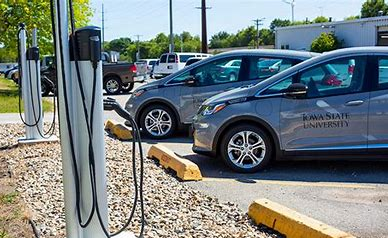Introduction
In recent years, the advent of self-driving cars has sparked both excitement and concern. These vehicles rely heavily on Artificial Intelligence (AI) to navigate the roads, make split-second decisions, and ensure passenger safety. But, as we entrust our lives to algorithms and sensors, the question arises: Is AI trustworthy in self-driving cars? In this article, we will delve deep into this topic, exploring the advancements, challenges, and implications of AI in autonomous vehicles.
The Promise of Self-Driving Cars
Revolutionizing Transportation
Self-driving cars promise to revolutionize the way we commute. They have the potential to reduce accidents, ease traffic congestion, and offer greater mobility to the elderly and disabled. AI plays a pivotal role in making this dream a reality.
Safety First
One of the primary arguments in favor of AI in self-driving cars is safety. AI algorithms can process vast amounts of data in real-time, allowing cars to react quickly to changing road conditions and potential hazards.
The Challenges
Technical Hurdles
Despite the promise of self-driving cars, there are significant technical challenges. AI systems must be able to handle complex scenarios, from heavy rain to unexpected road closures, while ensuring the safety of all passengers.
Ethical Dilemmas
AI systems in self-driving cars must also make moral decisions in the event of an imminent accident. For example, should the car prioritize the safety of its occupants or pedestrians? These ethical dilemmas are not easily resolved.
Trusting the Algorithms
Data Privacy
To function effectively, self-driving cars collect and process vast amounts of data. This raises concerns about data privacy and how this information is used, stored, and protected.
Reliability
AI systems are not infallible. There have been instances of self-driving cars making errors, raising questions about their reliability. Trust in AI requires a track record of safety and dependability.
The Road to Trustworthiness
Rigorous Testing
To build trust in AI-driven self-driving cars, rigorous testing is essential. Manufacturers must conduct extensive real-world and simulated testing to ensure the algorithms can handle a wide range of scenarios.
Transparency
Transparency in AI decision-making is crucial. Manufacturers should provide clear explanations of how self-driving cars make decisions, helping users understand and trust the technology.
Conclusion
In conclusion, the question of whether AI is trustworthy in self-driving cars is complex. While AI holds the promise of safer and more efficient transportation, it also presents challenges related to technical issues, ethics, data privacy, and reliability. Building trust in AI-driven self-driving cars will require transparency, rigorous testing, and a commitment to addressing ethical concerns.
FAQs
- Are self-driving cars completely autonomous? No, self-driving cars still require human oversight and intervention in certain situations.
- What happens if an AI-driven self-driving car encounters a scenario it can’t handle? In such cases, the car should ideally alert the driver to take control or safely pull over.
- How does AI in self-driving cars improve road safety? AI can analyze traffic conditions, predict potential accidents, and react faster than human drivers, reducing the risk of collisions.
- Can AI in self-driving cars adapt to different driving styles and preferences? Yes, AI systems can be customized to adapt to the preferences and comfort levels of individual passengers.
- Is the adoption of self-driving cars widespread yet? While self-driving technology is advancing, widespread adoption is still in progress, with regulatory and infrastructure challenges to overcome.

















